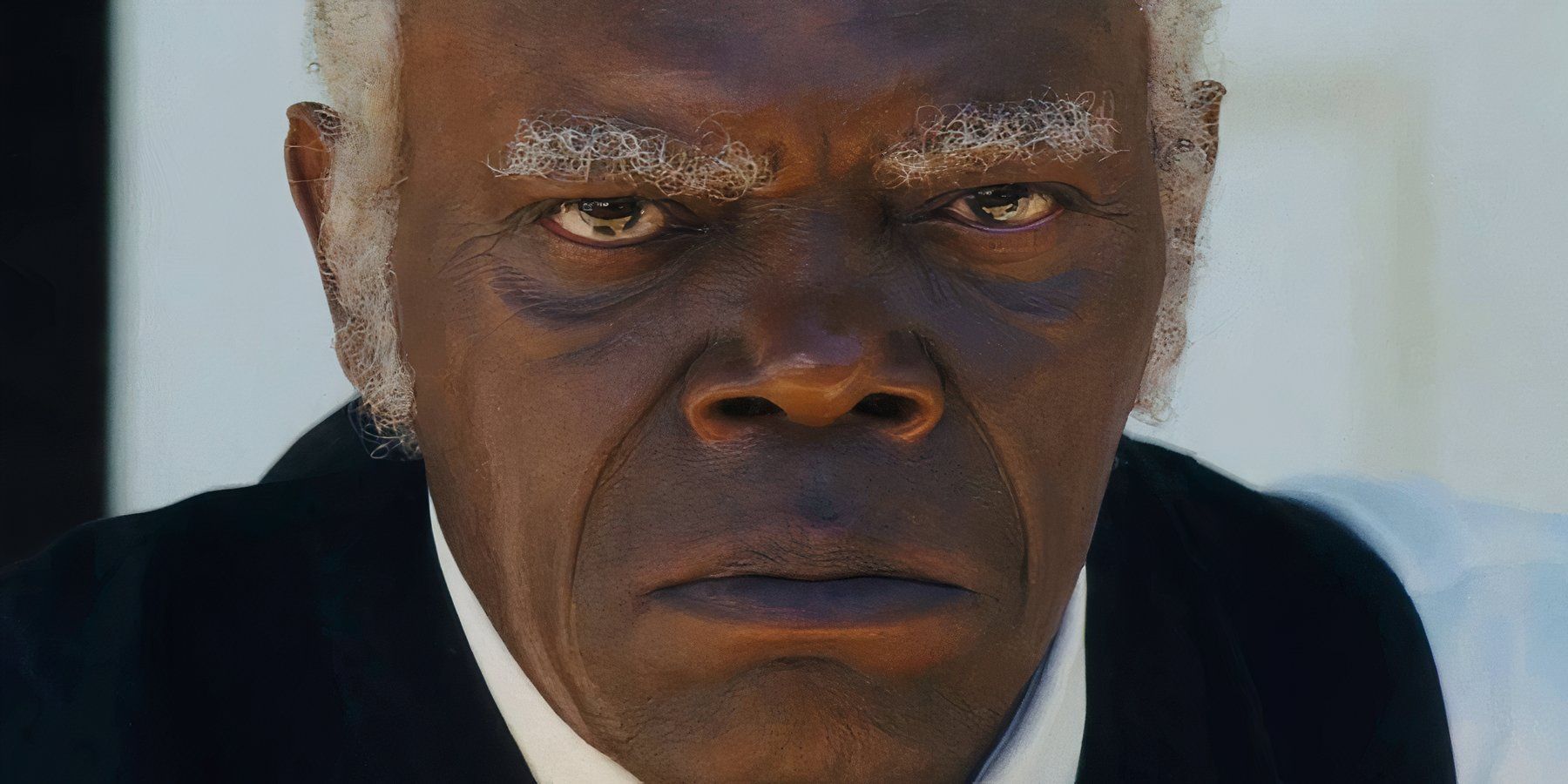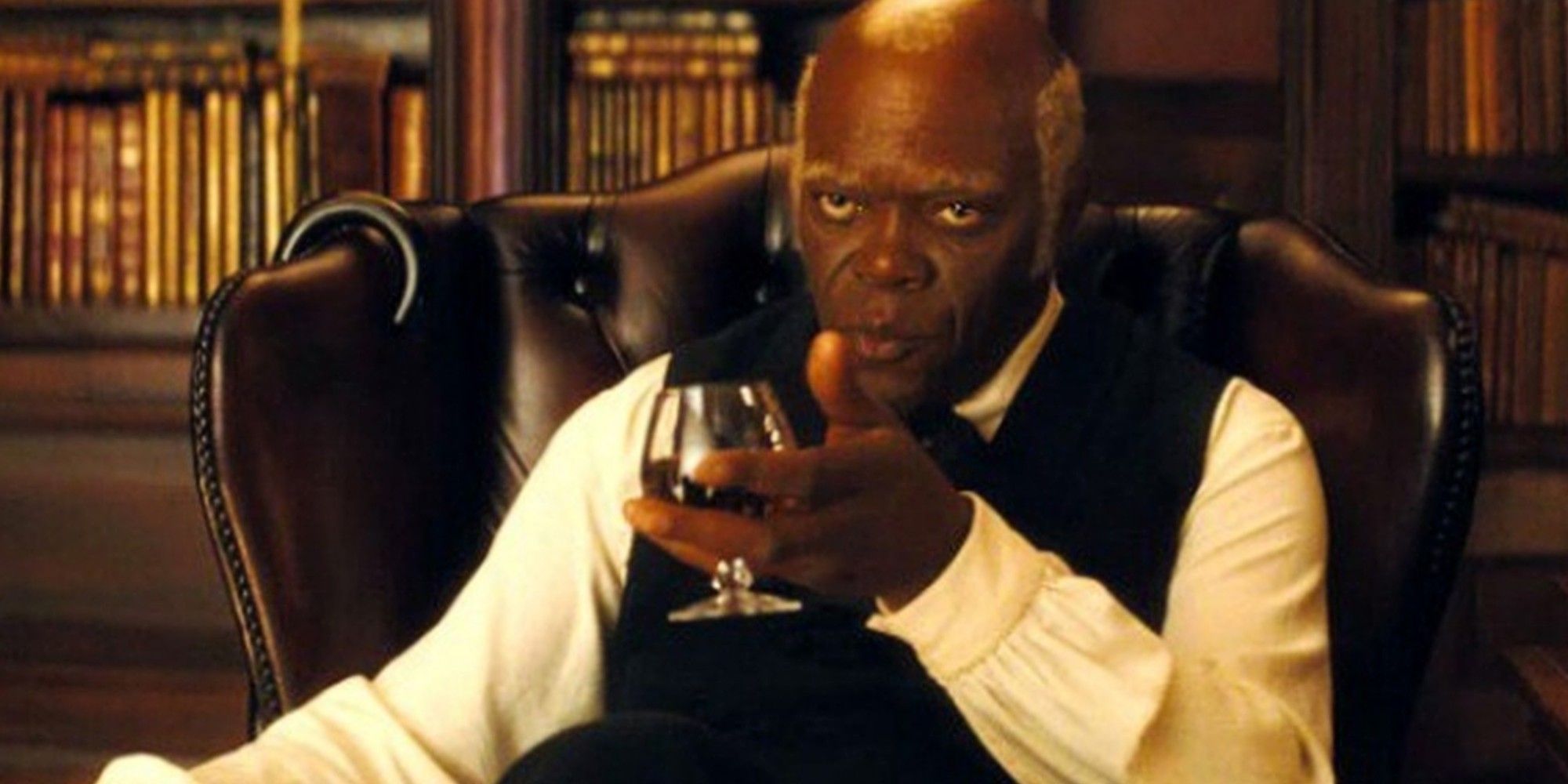
Samuel L. Jackson discusses a scene from Django Unchained This was cut because Quentin Tarantino thought it was too far. Django UnchainedThe cast features Jackson in the role of Stephen Warren, a slave loyal to the cruel plantation and slave owner Calvin Candy (Leonardo DiCaprio). The frequent use of racial slurs and cartoonish violence generated controversy Which pushes the boundaries even more than usual in many of Tarantino’s other movies.
While talking with GQ, Jackson reveals that a scene between Stephen and Django Freeman (Jamie Foxx) was cut Because even Tarantino felt it pushed the boundaries of what Jackson’s character could do. Jackson breaks down what happened between Stephen and Django in the deleted scene and how it affects the dynamic between the two characters. He explained that Tarantino thought the scene made Steven too angry and worried about the real-life backlash it could cause for Jackson. Read Jackson’s comments below:
Jamie and I have a scene in the house when I take Christoph to his room when they first get there. When I take him into the room, when I tell him: “Do what you want to do in this room because we burn everything and throw it away anyway.” And he slaps me, he drags me down, threatens to strip me and beat me all over the plantation. Calvin won’t let you do that. This is the setup between me and him that they didn’t use in the movie. So when we get to the point where he’s hanging upside down in that barn, I had a whole speech that wasn’t there while I was telling him, I’ve been on this plantation for X number of years and seen this, that and the other, Did all these slaves around here, and no one will lay hands on me until you.
And then I start using the hot poker to burn parts of his body. of course, [Quentin Tarantino was] Like, “I don’t want anyone to kill you. I mean you’re evil enough, we keep that s**t in the movie, people are going to hate you. Something’s going to happen and I’m going to be responsible.” It’s like, “Come on man, you’re backing out of your own s**t. This is your s**t and you don’t want to do it. I’m ready. I’m here to do it. This is the Come on, let’s get her.” I always thought he was going to put a director’s cut and keep it because we shot it.
What this means for Django Unchained
The deleted scene reinforces what is already known about Steven
Based on the details provided by Jackson, The deleted scene adds further tension and animosity between Django and Stephen and makes Stephen even more despicable. This does not change the relationship between Django and Stephen, as there is still a lot of tension and animosity between them in the final version of the movie, which culminates in Stephen being left for dead during Django UnchainedIt’s the end. It adds more context to their dynamic, however, giving Django even more reason to hate Steven.
Related
Tarantino’s best movies have little qualms when it comes to violence, but even he recognizes that there can be a limit to what needs to be shown. He and Jackson have worked closely together on several movies before Django Unchainedincluded Pulp fiction And Jackie BrownWith their relationship impacting his decision to Cut the scene in order to protect Jackson from potential backlash. While Jackson was open to keeping the scene in, Tarantino prioritized doing what he thought was best for his friend and frequent collaborator.
Our take on the deleted scene
It didn’t need to be included
This scene fundamentally changes nothing between Django and Stephen and only hinges on what is already present between them. Given the movie’s abundance of racial slurs and graphic violence, it’s intriguing to see where Tarantino decides to draw the line. Since it does not change much in the actual story of Django UnchainedIt makes sense that Tarantino never released a Django Unchained Director’s cut with this scene, despite Jackson believing that it should be kept in.
Source: GQ
